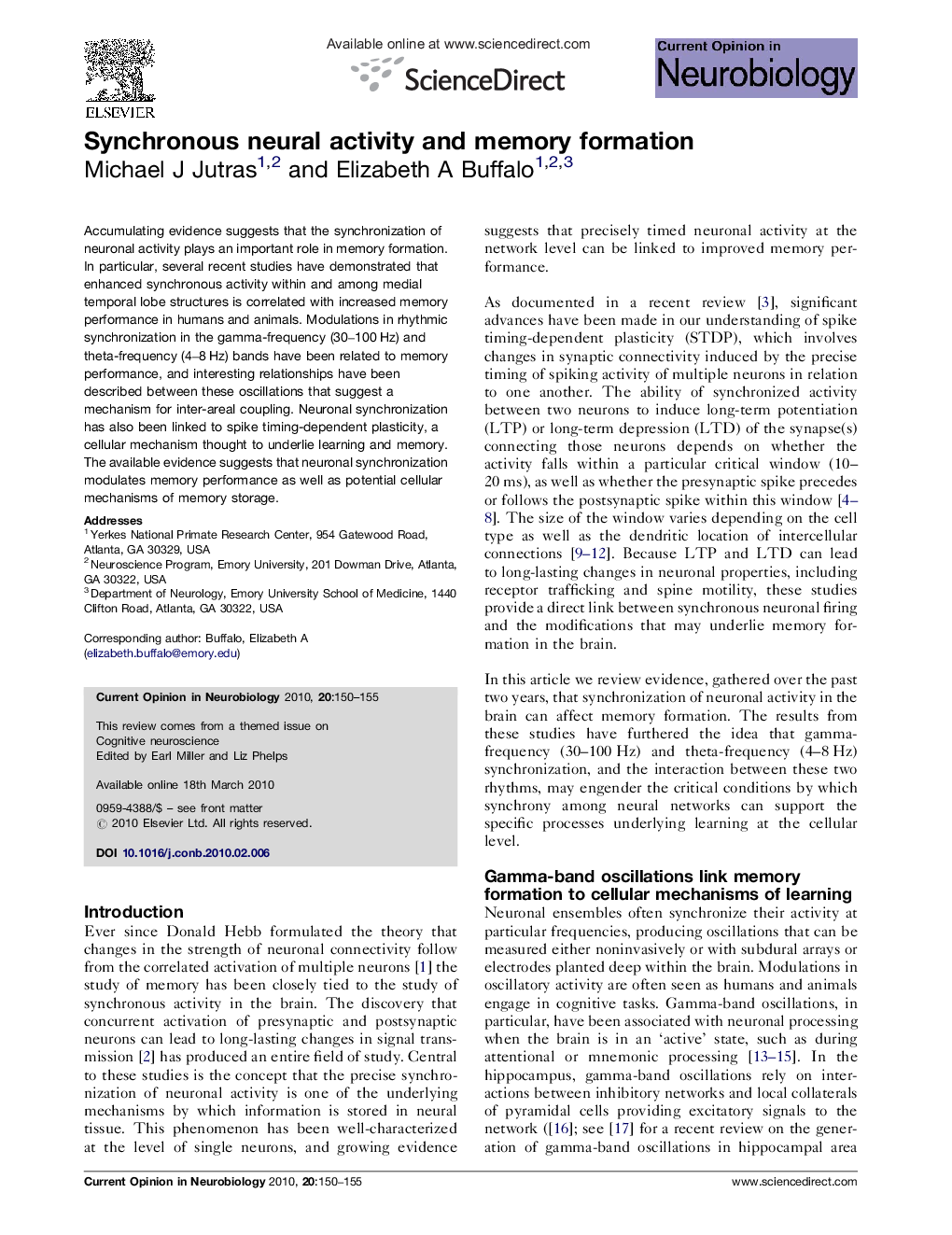| Article ID | Journal | Published Year | Pages | File Type |
|---|---|---|---|---|
| 4334510 | Current Opinion in Neurobiology | 2010 | 6 Pages |
Accumulating evidence suggests that the synchronization of neuronal activity plays an important role in memory formation. In particular, several recent studies have demonstrated that enhanced synchronous activity within and among medial temporal lobe structures is correlated with increased memory performance in humans and animals. Modulations in rhythmic synchronization in the gamma-frequency (30–100 Hz) and theta-frequency (4–8 Hz) bands have been related to memory performance, and interesting relationships have been described between these oscillations that suggest a mechanism for inter-areal coupling. Neuronal synchronization has also been linked to spike timing-dependent plasticity, a cellular mechanism thought to underlie learning and memory. The available evidence suggests that neuronal synchronization modulates memory performance as well as potential cellular mechanisms of memory storage.
